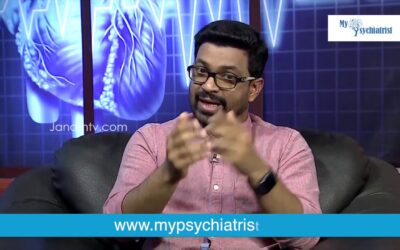Obsessive compulsive disorder [OCD] is a mental illness characterized by repetitive, unwanted, and intrusive thoughts [obsessions], that cause distress and anxiety. In attempts to reduce this anxiety, they may indulge in compulsive behaviours and rituals which cause difficulty in daily activities and others.
OCD affects 2 to 3 out of every hundred people. The symptoms usually begin in adolescence or early adulthood and is usually gradually progressive.
A high degree of heritability is seen and relatives of patients with OCD. Obsessive compulsive symptoms are also found to be associated with certain neurological conditions. Changes in levels of certain chemicals in the brain [serotonin] have been found in patients with OCD. These imbalances are considered to cause the symptoms of OCD.
In OCD, although the person recognizes that the obsessive thoughts are unreasonable, they are unable to control these thoughts, or the anxiety associated with them. The most common obsessions are about contamination [being contaminated through routine activities such as shaking hands or touching things] repeated doubts [whether an activity has been properly done, e.g.: locking the door] fear of people getting hurt, the need to keep things in order or symmetry. Certain obsessions which have sexual or blasphemous content are especially anxiety-provoking to the patient. Obsessions also interfere with the ability to concentrate and resulting in mistakes at work. Patients also end up avoiding situations that may provoke an obsession.
Patients usually deal with this anxiety by involving themselves in countermeasures called compulsions that which are also often repetitive or ritualistic. Example washing hands repeatedly or for a particular number of times, checking repeatedly, arranging, and ordering things. Some compulsions may be mental such as praying, counting, silently repeating words etc. Performing these compulsions often takes up a lot of time, slowing the person down; and this could affect other activities including social interactions, work, and in severe cases even personal daily activities. Sometimes these persons may also insist and that other family members perform similar compulsions [proxy compulsions]. If not allowed to perform the compulsions, it results in severe anxiety symptoms and agitation.
OCD in children is generally similar, washing, checking, and ordering compulsions are common. The children generally do not request help and may not consider their thoughts to be unreasonable. They often have problems concentrating at school and maybe slow to finish their work.
People with OCD have a higher risk of developing major depression and using addictive substances.
Once the diagnosis is made, your doctor may choose to treat you with medications alone, psychotherapy alone, or a combination of the two, based on the type of symptoms you have and their severity. Medications for OCD work by correcting the previously mentioned chemical imbalances in the brain. They need to be continued for an extended period, at times lifelong. Based on your symptoms and any associated medical condition, your doctor will choose a medication that suits you. The medication will be started at a lower dose and gradually built up to the desired level. These medications generally take a few weeks’ time to start acting.
Psychotherapy for OCD requires significant motivation and co-operation from the patient. However, they often have good and lasting response if the instructions are followed.
The illness usually runs a chronic course with worsening associated with stressful life events. The dosage of medications may need to be adjusted in such situations. Restarting psychotherapy with supportive work during these times is also helpful. Persons with well controlled OCD can continue their activities without interference and achieve their full potential.



0 Comments